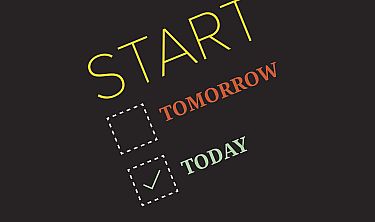At a recent Aspen Ideas Festival, Katie Couric sat down with Adam Grant and Simon Sinek to talk about millennials in the workplace. The surprising element? Millennials may be driving this cultural shift, but these changes have benefits for all. Millennials aren’t as different as we may have imagined them to be, and the future of work is changing so rapidly that we’d do well to get on board.
Not So Different, You and I
The ‘old’ have always complained about the young, and with relish. But Adam Grant points out, “When you look at the data, millennials are not that different from the rest of us in what they want.” Though the label of “entitled” is relatively new, it turns out it’s not a new criticism. Simon Sinek told of one researcher who went back to surveys given to high school seniors throughout the past decades, and found that Gen Xers and baby boomers were “just as entitled at their age.” The qualities most often held against millennials are driven by age, not generational cohort. The thinking is that before we become responsible for children and families, while we’re still in our 20s and early 30s, every generation has exhibited these traits.
Grant conducted research with Facebook about what its millennial employees were looking for from their work and through surveys, three clear themes rose to the top:
- Career: want to be challenged, grow, experience mastery, rise in influence
- Community: want to experience belonging, have friendships, feel valued as a part of the team
- Cause: want to have a sense of purpose, that our mission matters, know that I make a meaningful contribution
Next, they sent the survey to the Gen X and baby boomer employees (yes, there are a few 60 year olds that work in tech) and found that the same three things were priorities. Interestingly, though millennials are often stereotyped as being obsessed with meaning and purpose, the concern for cause rose steadily with the age of the respondent.
What Matters Most
So often, fancy perks like free cafeteria food or a stylish office space are thought to attract millennial talent, but Grant and Sinek agree that these miss the point. Alternatively, millennials often seek jobs with specific outcomes: a certain salary or benefits, a certain amount of prestige. Neither one lead to happiness, or great performance.
What matters most at work is the people you work with, and your day to day tasks. Sinek shared the story of how he approached job interviews when he was younger: when asked what he was looking for in a job, he would always give the same reply, "I’m looking for a mentor."
One of the best companies to work for may not be what you think. WD40 – yes, the ubiquitous garage grease – has an incredible reputation as a workplace. It’s not that they have the most bean bag chairs or campus scooters or a whole cereal room in the cafeteria, it’s all about the people and how they mentor and support one another.
How to Succeed In Business Without Really Trying
Millennials are not the only ones trying to figure out how to live their best life, how to find a career they love and find meaningful. As the future of work is rapidly changing, it’s worth looking at what truly contributes to personal success.
Likeability
There are two ways to be popular: status and likeability. Likeability is a strong predictor of positive outcomes. Social media, the favorite target of millennial suspicion, can be used to build either one. What makes you most likeable, argues Katie Couric, is your ability to find other people interesting. With an outward focus, and committing to listening to others, you’ll build your likeability and become someone that others want to be around and find valuable.
Skills
Grant recommends taking jobs based on the skills you want to learn for the next step of your career. “The best approach is to say, there are some skills I really want to learn and practice, and I’m going to take my first job based on that. And then once I’ve gotten a handle on those skills, I’m going to figure out what else I want to learn how to do, and base job two off of what I learned at job one.” A fair and harsh assessment of your own skills, using the insights of those around you, can lead to a clearer picture of what you can use and what you can develop and where to go next.
Tech Detox
The panelists were in agreement about technology – and it’s not just a millennial problem. Grant mentioned a study that found that just by having your phone on your desk (even if it isn’t on!) means that your working memory drops by 10% and your fluid memory by 5%. (Have your phone in a different room if you’re serious about focus) For example, Grant described an engineering department that went to a No Interruptions schedule from 9:00am-12:00pm 3 times a week. They literally weren’t allowed to talk to each other during those hours. The result? Their product launched on time for the first time ever.
Sinek continued on this theme by explaining that you need twenty minutes of concentration before you get into deep thought, and every time you’re interrupted, you need to start the twenty minutes over again. The problem is that we’re so addicted to these interruptions that we self-interrupt if we’re not outwardly interrupted.
Think your office can’t enforce a cell phone-free conference room? Consider this: “In the Pentagon,” Grant explains, “you are not allowed to bring any devices in. The depth of conversation that happens with uninterrupted attention is amazing. There are scheduled breaks to check devices all at once, and then they come back to the room. There is no reason others can’t do this.”
Millennials may be the lightning rod for so much social commentary, but we all face the same challenges and opportunities in the changing world of work. A focus on community and cause, the daily opportunities for connection, and making an effort to be truly present to learn and grow can benefit all of us.
Check out the full audio recording courtesy of the Aspen Ideas Festival.





